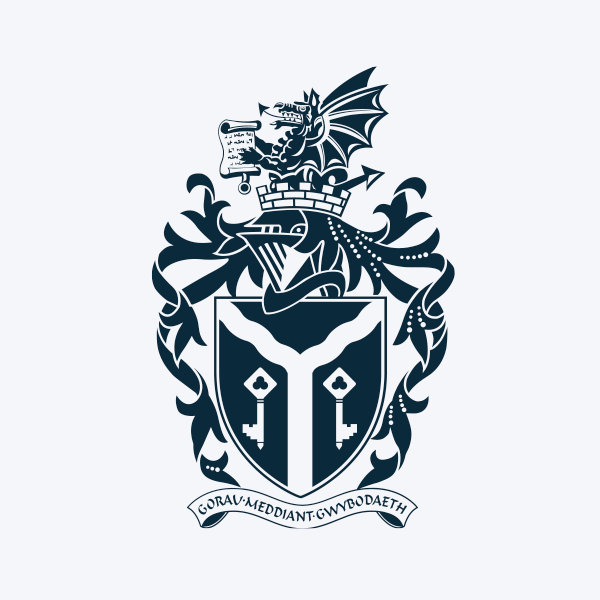
Dr Issam Damaj
Senior Lecturer in Computer Science
Cardiff School of Technologies
Overview
Issam Damaj, PhD ME BE SMIEEE, is a Senior Lecturer in Computer Science with the Department of Applied Computing and Engineering, Cardiff Metropolitan University (Cardiff Met), Cardiff, United Kingdom (UK). Before joining Cardiff Met, he spent 17 years in professorial ranks in higher education institutions in Lebanon (Beirut Arab University, BAU, three years), Kuwait (American University of Kuwait, AUK, ten years) and Oman (Dhofar University, DU, three years).
During his tenure, Dr Damaj published more than 100 technical papers and book chapters—In addition to various short papers and technical reports. He supervised doctorate and master’s students at different institutions. His research interests include hardware design, smart cities, and technical education. During his career, he was assigned a variety of leadership positions in university administration, quality assurance, and accreditation.
In 2004, Dr Damaj was awarded a Doctor of Philosophy Degree in Computer Science, in the area of Computer Hardware Design, from London South Bank University, London, UK. He received a master’s degree in Computer and Communications Engineering from the American University of Beirut (AUB) in 2001. In addition, He received a bachelor’s Degree in Computer Engineering from BAU in 1999.
Dr Damaj is a Program Evaluator (PEV) with ABET Engineering Accreditation Commission (EAC), a senior member of the IEEE, a member of the American Society of Engineering Education (ASEE), and a member of the Order of Engineers and Architects (OEA) in Beirut. He was the Founding Counselor of the AUK IEEE Student Branch between 2014 and 2019. He is an associate editor and a reviewer with publishers that include IEEE, Elsevier, and Springer. In addition, he is the recipient of various awards in mentoring, service, research, and academic high distinction.
Research Publications
Intelligent Technology-Driven Hand-Hygiene Solutions in Food and Healthcare Industries
Shrestha, P., Evans, E., Redmond, E. & Damaj, I., 7 May 2025.Research output: Contribution to conference › Poster › peer-review
Effective reviews of multicampus engineering programs
Damaj, I., Elkordi, A. & Abou Chahine, S., 20 Dec 2024, Higher Education and Quality Assurance Practices. IGI Global, p. 391-420 30 p.Research output: Chapter in Book/Report/Conference proceeding › Chapter › peer-review
Challenges of Cyber Risk Management in Multinational Operations and Missions
Hutson, P. M., Damaj, I. W., Hewage, C. & Platts, J., 18 Sept 2024, AI Applications in Cyber Security and Communication Networks - Proceedings of 9th International Conference on Cyber Security, Privacy in Communication Networks ICCS 2023. Hewage, C., Nawaf, L. & Kesswani, N. (eds.). Springer Science and Business Media Deutschland GmbH, p. 419-429 11 p. (Lecture Notes in Networks and Systems; vol. 1032 LNNS).Research output: Chapter in Book/Report/Conference proceeding › Conference contribution › peer-review
Extending the Reflection on Dhofar University's Journey in Collaboration, Accreditation, and Sustainable Education
Damaj, I., Baig, I. & Chaaban, F., 18 Sept 2024, Proceedings of the Regional Conference on Power and Energy Sustainability. IEEE Computer Society, 7 p.Research output: Chapter in Book/Report/Conference proceeding › Conference contribution › peer-review
Intelligent Caching Based on Popular Content in Vehicular Networks: A Deep Transfer Learning Approach
Ashraf, M. W. A., Raza, A., Singh, A. R., Rathore, R. S., Damaj, I. W. & Song, H. H., 28 Aug 2024, In: IEEE Transactions on Intelligent Transportation Systems. 25, 12, p. 20643-20656 14 p.Research output: Contribution to journal › Article › peer-review
Distinctive landmarks in the history of computing and engineering: the past, the present, and the future
Damaj, I. W., Shaikh, P. W. & Mouftah, H. T., 5 Aug 2024, In: International Journal for the History of Engineering and Technology. 94, 2, p. 89-107 19 p.Research output: Contribution to journal › Article › peer-review
Electric vehicle charging technologies, infrastructure expansion, grid integration strategies, and their role in promoting sustainable e-mobility
Singh, A. R., Vishnuram, P., Alagarsamy, S., Bajaj, M., Blazek, V., Damaj, I., Rathore, R. S., Al-Wesabi, F. N. & Othman, K. M., 6 Jul 2024, In: Alexandria Engineering Journal. 105, p. 300-330 31 p.Research output: Contribution to journal › Article › peer-review
Optimizing FPGA implementation of high-precision chaotic systems for improved performance
Damaj, I., Zaher, A., Lawand, W. & Bilal, M. (Editor), 9 Apr 2024, In: PLoS ONE. 19, 4, p. e0299021 e0299021.Research output: Contribution to journal › Article › peer-review
Legacy Versus Algebraic Machine Learning: A Comparative Study
Haidar, I. M., Sliman, L., Damaj, I. W. & Haidar, A. M., 19 Mar 2024, 2nd International Congress of Electrical and Computer Engineering. Seyman, M. N. (ed.). Springer Science and Business Media Deutschland GmbH, p. 175-188 14 p. (EAI/Springer Innovations in Communication and Computing).Research output: Chapter in Book/Report/Conference proceeding › Conference contribution › peer-review
High Performance and Lightweight Single Semi-Lattice Algebraic Machine Learning
Haidar, I. M., Sliman, L., Damaj, I. W. & Haidar, A. M., 18 Mar 2024, In: IEEE Access. 12, p. 50517-50536 20 p.Research output: Contribution to journal › Article › peer-review